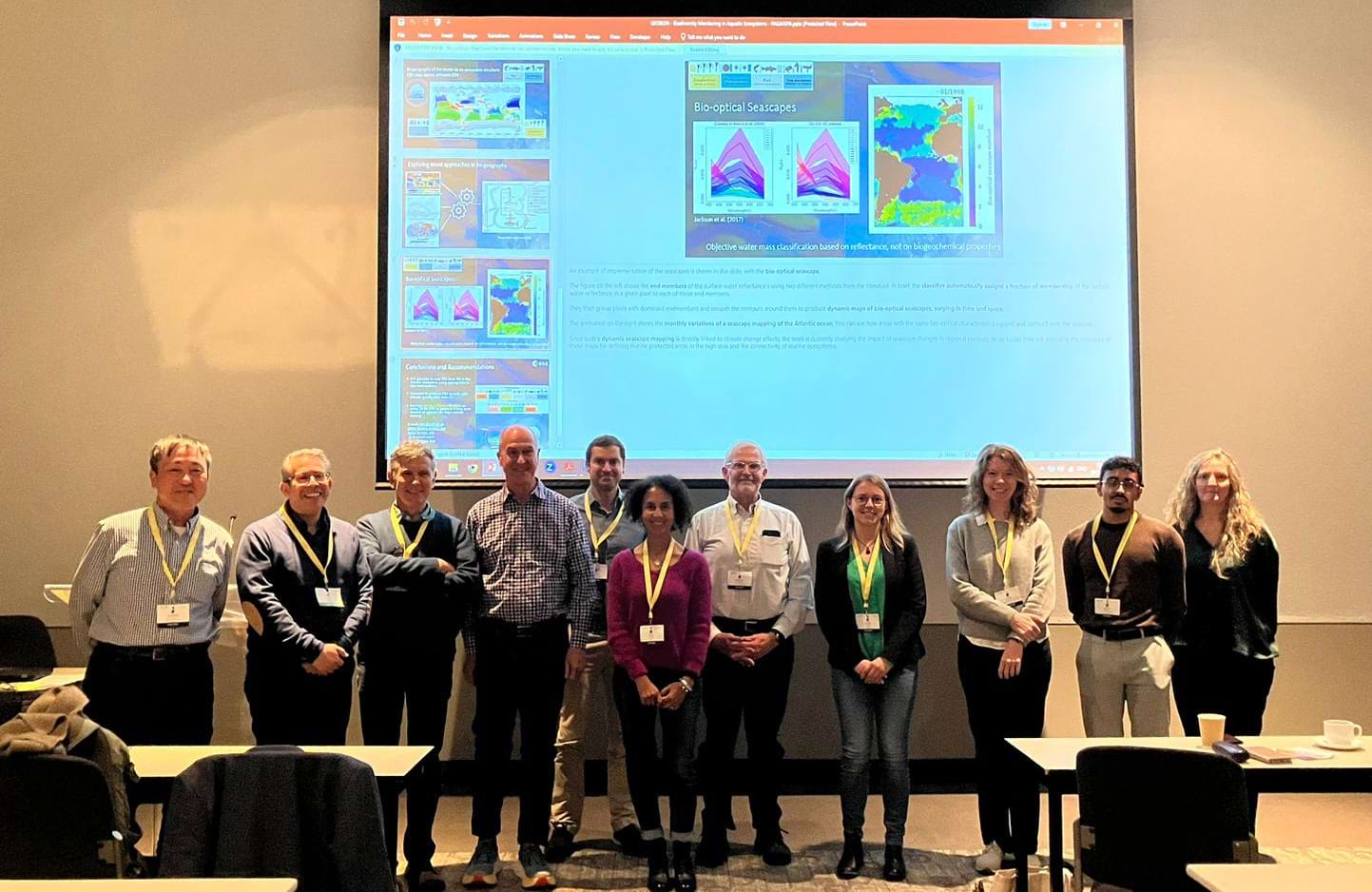MBON and the Fresh Water Biodiversity Observation Network (FWBON) brought together their members in a joint session at the GEO BON Global Conference 2023 in Montreal

On October 12th, 2023, the Marine Biodiversity Observation Network (MBON) and the Fresh Water Biodiversity Observation Network (FWBON) brought together their members in a joint session at the GEO BON Global Conference 2023 in Montreal.
With the goal of Monitoring Biodiversity for Action, this joint session explored how biodiversity monitoring capabilities and approaches in marine and inland waters can be aligned with terrestrial approaches to track biodiversity change. Topics included 1) the role of thematic biodiversity observation networks (FWBON and MBON) and existing programs (GBIF, OBIS, etc.) in building the Global Biodiversity Observation System (GBiOS) and measuring ecosystem services with a special focus on food/energy/water; 2) linking the frameworks of Essential Variables (Essential Ocean Variables, Essential Climate Variables, and Essential Biodiversity Variables) and Biotic Condition Indicators of the SEEA Ecosystem Accounting framework; 3) benefits and feasibility of aligning biodiversity indicator dashboards for communicating biodiversity change in marine and inland waters; 4) opportunities and challenges for community-based monitoring and integration of Traditional Ecological Knowledge in aquatic realms; and 5) priorities for further indicator development to support national needs and international agreements such as the Kunming-Montreal GBF, the Sustainable Development Goals, and the UNFCCC Paris Agreement.
Highlights:
There is an urgency to synergize aquatic approaches to biodiversity monitoring and data collection and to better connect the community globally and across freshwater and marine domains. In fresh water, coastal and open ocean environments, important direct drivers of biodiversity loss (fishing, land and sea use, pollution) augment the impacts of climate change. Measuring the extent of inland, coastal, and marine biodiversity to characterize habitats and biodiversity is a management priority for nations around the world. Nations are faced with addressing the goals and targets of the Kunming-Montreal Global Biodiversity Framework, and this requires baselines and measuring progress against them. Yet nationally and regionally accepted protocols for freshwater biodiversity monitoring and ecological status assessment are rare.
Key challenges still encompass limited awareness and understanding, restricted access to advanced technologies, capacity-building gaps, and financial constraints.
Yet the structure provided by GEO BON to link different national and thematic BONs helps to address requirements for biodiversity information in the land-ocean-atmosphere continuum to address multiple societal needs. A major effort underway is to integrate biology and ecosystems observations with physical and biological observing systems across the continuum. There is also progress in better coordinating across the limnology community and wetlands observing strategies. The Global Ocean Observing System (GOOS) provides a framework for the design and implementation of ocean observing systems for marine life via a series of Essential Ocean Variables (EOVs). These EOVs, spanning physical, biogeochemical and marine life observations, provide the foundation for the Essential Biodiversity Variables. There is a recognition that habitats such as drainage ditches, estuaries of all sizes, and wetlands play important roles in delivering ecosystem services and need to be integrated into these observing frameworks. Many of these areas are important for food, human health, and developing and managing Blue Carbon.
New methods, such as Underwater Hyperspectral Imaging, environmental DNA, acoustics, animal tracking and remote sensing are emerging for assessing biodiversity and ecological status of shallow and deep aquatic ecosystems.
Co-chairs: Eren Turak, FWBON, eren.turak@environment.nsw.gov.au; Frank Muller-Karger, University of South Florida, carib@usf.edu; Joana Soares, Atlantic International Research Centre, joana.soares@aircentre.org
